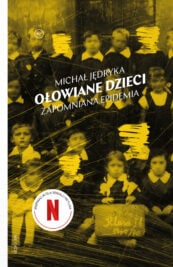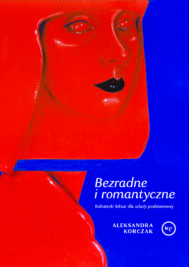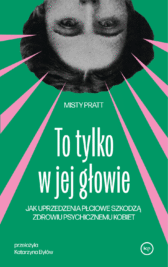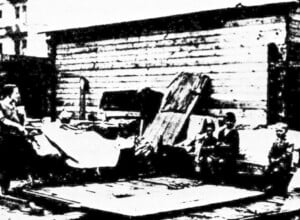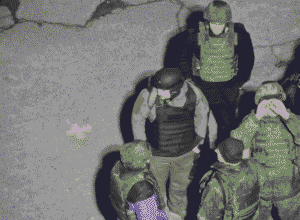Na papierze Anora wygląda jak przepis na filmową katastrofę: erotyczna tancerka rosyjskiego pochodzenia, pracująca w nowojorskim klubie, spotyka w pracy młodziutkiego, dopiero zaczynającego dorosłe życie syna rosyjskiego oligarchy, który zostaje jej stałym klientem. Relacja biznesowa robi się coraz bardziej osobista, para bierze ślub w Vegas, co wywołuje wściekłość rodziców pana młodego.
Na szczęście za scenariusz i reżyserię odpowiada Sean Baker, jeden z najciekawszych filmowych autorów amerykańskiego kina niezależnego. Nie dostajemy Pretty Woman z dziedzicem oligarchicznej fortuny z Rosji w miejsce Richarda Gere’a, kolejnej wersji bajki o Kopciuszku.
Prawo do szczęścia
Relacja tytułowej bohaterki i jej męża Iwana kończy się serią tragikomicznych katastrof. Do luksusowej nowojorskiej rezydencji puka trzech mężczyzn: pracujący dla ojca chłopaka, od dawna mieszkający w Nowym Jorku Ormianin Toros, oraz jego dwóch pomocników. Jeden z nich, Igor, wygląda, jakby urwał się z planu filmu o penetrującej nowojorskie podziemie rosyjskiej mafii. Toros dostał od rodziców Iwana – którzy o ślubie syna z pracownicą seksualną dowiedzieli się z mediów społecznościowych – jasne polecenie: wyjaśnić, co się właściwie stało, unieważnić małżeństwo, oszczędzić rodzinie dalszego „wstydu”.
Film staje się najciekawszy w momencie, gdy Iwan odsuwa się na dalszy plan, a w centrum umieszczony zostaje konflikt między Anorą a Torosem, Igorem i potężną rodziną rosyjskich oligarchów.
Tancerka z Brooklynu okazuje się o wiele trudniejszym przypadkiem, niż Toros i jego pomocnicy mogli przypuszczać. Nie daje się zastraszyć, jest zdeterminowana, by walczyć o swoje. Babka dziewczyny pochodziła z byłego ZSRR, ale ona sama wychowała się w Stanach. I ma głęboko uwewnętrznioną zasadę zapisaną w Deklaracji niepodległości, głoszącą, iż ludzie obdarzeni są „niezaprzeczalnymi i niezbywalnymi prawami”, do których zalicza się prawo do „dążności do szczęścia”. Wiemy, jak ta dążność się skończy, jednak nie możemy nie kibicować bohaterce.
Baker nie stawia wprost pytania: czy tytułowa bohaterka kiedykolwiek kochała Iwana, czy małżeństwo było dla niej tylko transakcją? Być może Anora sama nie zdaje sobie sprawy ze swoich motywacji. Nie mamy jednak wątpliwości, że w całej tej sytuacji to ona została niesprawiedliwie potraktowana. Choć cały świat wielokrotnie próbuje zawstydzić dziewczynę – głównie ze względu na zawód, jaki wykonuje – ona nie daje się ustawić w pozycji wstydu, skutecznie domaga się poszanowania swojej godności.
Mickey Madison w roli Anory jest rewelacyjna. Nie tylko ożywia tę postać niezwykłą ekranową energią, ale też jednym gestem, spojrzeniem, wyrazem twarzy potrafi nasycić sceną bogactwem subtelnych znaczeń. Ostatnia scena – gdy z bohaterki schodzi cała adrenalina i brawura, odsłania się jej wrażliwość i „ranliwość” – jest absolutnym aktorskim majstersztykiem.
Baker z kolei jest świetny nie tylko w tym, jak prowadzi aktorów i reżyseruje kameralne, psychologiczne sceny, wydobywając cały ich tragizm i komizm – Anora jest miejscami niesamowicie zabawna – potrafi też znakomicie pokazać miasto jako tło historii. Film rozgrywa się głównie w Brighton Beach, dzielnicy Brooklynu zamieszkanej licznie przez migrantów z Rosji i innych krajów dawnego ZSRR. Reżyser i jego operator Drew Daniels wydobywają cały potencjał tej okolicy. Od czasu Nieoszlifowanych diamentów braci Safdie nie mieliśmy w kinie tak fascynującego, pulsującego brudną energią, nieturystycznego Nowego Jorku.
Sen o pornoutopii
Odbierając w maju Złotą Palmę za Anorę na festiwalu w Cannes Baker podziękował „wszystkim sekspracownikom”. Anora nie jest pierwszą bohaterką pracującą w tej branży, jaką sportretował reżyser. Jego poprzedni film Red Rocket (2021) pokazywał aktora porno Mikiego, który po tym, jak jego kariera w Kalifornii się załamała, wraca do swojej rodzinnej miejscowości w Teksasie – upalnego miasta pośrodku pustyni, zbudowanego wokół rafinerii ropy naftowej, stanowiącej centrum gospodarczego i społecznego życia miasta.
Mikey zaczyna od zera. Nie ma niczego poza rowerem, odpowiednim raczej dla ucznia ostatnich klas podstawówki niż okazałego, dorosłego mężczyzny. Wprowadza się do domu teściowej i żony. Małżeństwo od dawna jest fikcją, żona niechętnie pozwala mu spać na kanapie. Mikey nie może znaleźć pracy ze względu na swoją zawodową przeszłość. By się utrzymać, zaczyna sprzedawać marihuanę.
Cały czas marzy jednak o powrocie do branży porno. Szansy upatruje w siedemnastoletniej Raylee. Wchodzi z nią w relację i namawia, by gdy tylko skończy osiemnaście lat, pojechała z nim do Kalifornii i wspólnie występowała w filmach dla dorosłych.
Na środku teksańskiej pustyni przemysł porno w odległej Kalifornii jawi się jako przestrzeń utopijna, miejsce ze snu, specyficzne wcielenie amerykańskiego marzenia. Mikey opowiada kolegom z dawnych lat, którzy zostali na miejscu, gdy on wyjechał, o swojej pracy ze znanymi aktorkami z branży, jakby relacjonował współpracę z gwiazdami filmowymi pierwszej wielkości. Jednocześnie, jak pokazuje zarówno historia Mikiego, jak i jego relacja z Raylee, przemysł porno jest w stanie bezlitośnie wykorzystywać i miażdżyć marzenia.
Baker nie podchodzi do tematu pracy seksualnej – zarówno tej Anory, jak i Mikiego – w tonie paniki moralnej. Odczarowuje ją i pokazuje po prostu jako pracę, choć niosącą ze sobą bardzo specyficzne ryzyka.
Rosyjski zgrzyt
Jednak oglądając znakomitą Anorę, odczuwamy pewien zgrzyt. Akcja filmu rozgrywa się w 2019 roku, trzy lata przed rozpoczęciem pełnoskalowej inwazji na Ukrainę. Film oglądamy jednak w momencie, gdy zbliżamy się do trzeciej rocznicy rozpoczęcia wojny. To stwarza szereg problemów.
W filmie występują aktorzy znani z udziału w problematycznych rosyjskich produkcjach. Mark Eidelstein, odtwarzający Iwana, zagrał wcześniej w filmie Kraj Saszy, kręconym na okupowanym Krymie i dystrybuowanym przez firmę należącą do Gazpromu. Rewelacyjny Jurij Borysow jako Igor zagrał tytułową rolę w produkcji portretującej Michaiła Kałasznikowa – twórcę najsłynniejszej rosyjskiej broni. Pojawia się więc raz jeszcze pytanie, czy demokratyczne kraje powinny być otwarte na współpracę z rosyjskim artystami, którzy nie odcięli się zupełnie od Rosji Putina.
Wśród ukraińskiej diaspory w Europie pojawiały się głosy, że Anora – nie odmawiając filmowi artystycznych zalet – normalizuje obraz Rosji na Zachodzie, a Złota Palma w Cannes jest dowodem zmęczenia Zachodu tematem wojny w Ukrainie. Bez wątpienia film, nagrody dla produkcji i biorących w niej udział rosyjskich aktorów mogą być wykorzystywane do normalizacji obrazu Rosji w zachodnich demokracjach.

 Wspieraj
Wspieraj 

 Wspieraj
Wspieraj  Wydawnictwo
Wydawnictwo 
 Zaloguj się
Zaloguj się 

